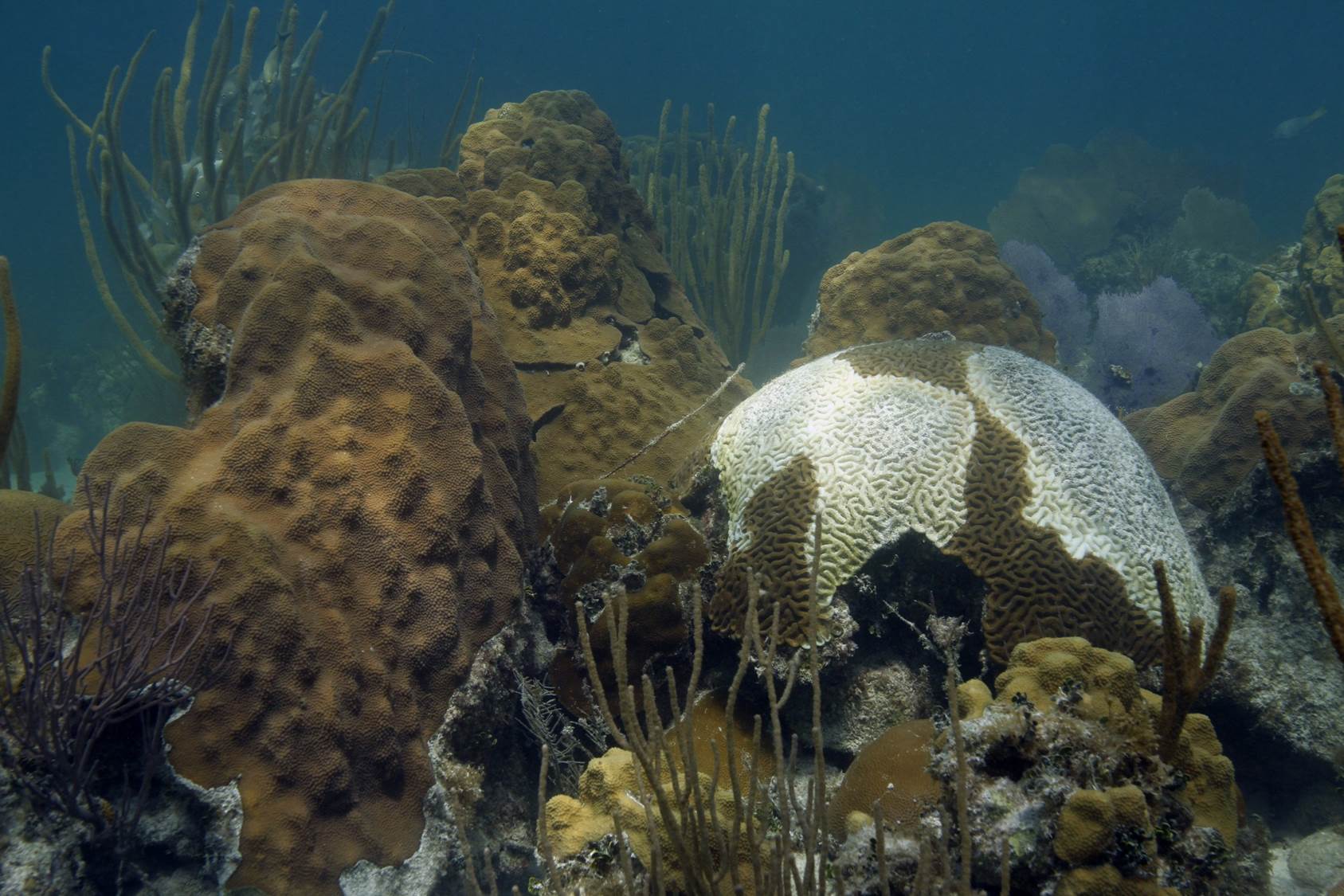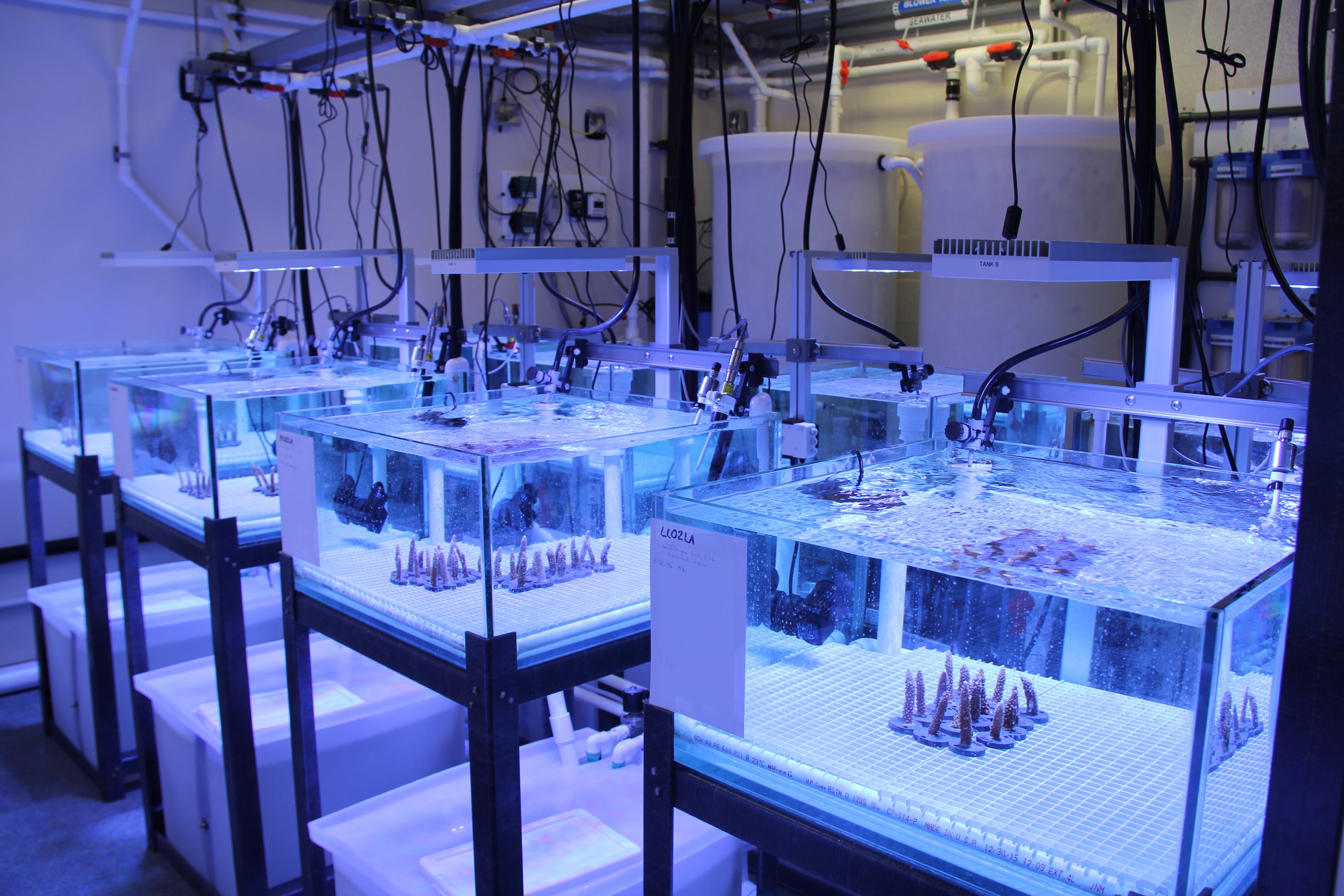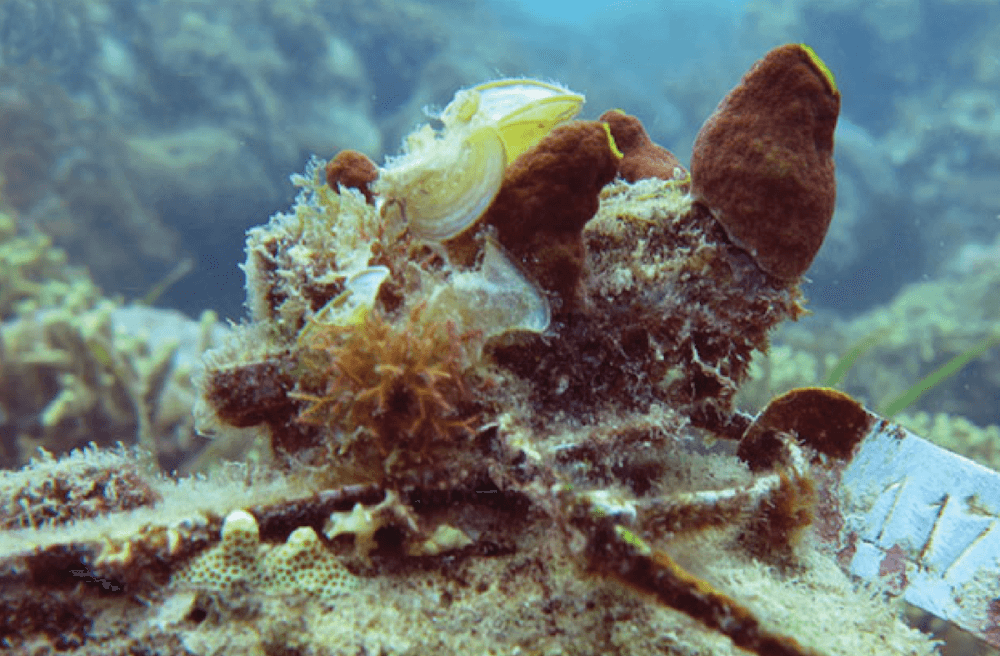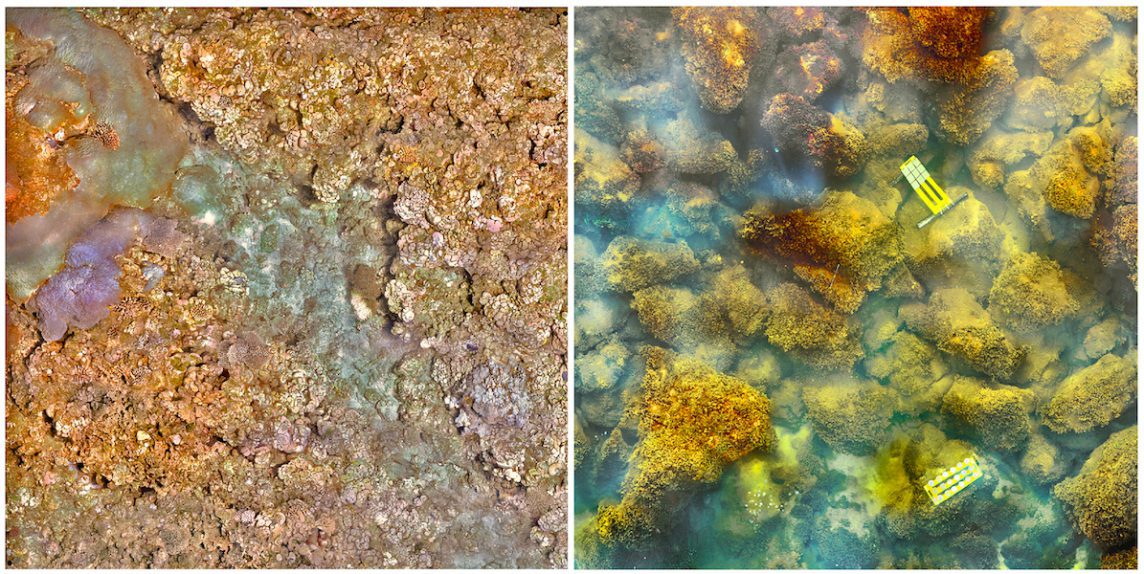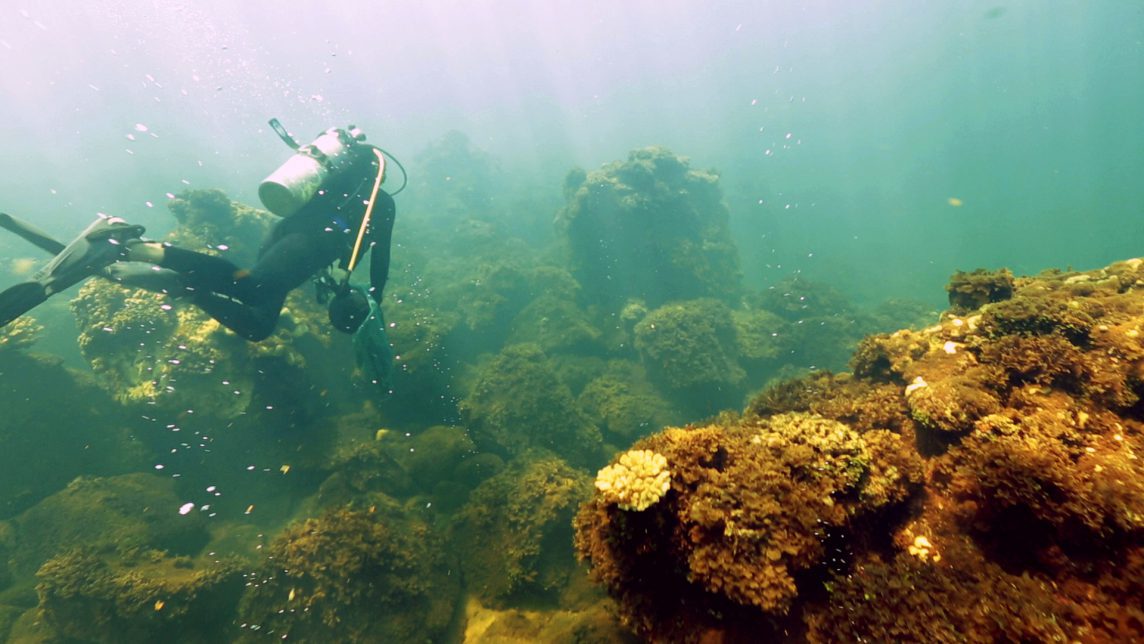NOAA contributed to a study published today in the journal Nature that compares the upward growth rates of coral reefs with predicted rates of sea-level rise and found many reefs would be submerged in water so deep it will hamper their growth and survival. The study was done by an international team of scientists led by the University of Exeter in the United Kingdom.
Researchers Explore Coral Resiliency in New Experimental Reef Laboratory
Coral researchers at AOML unveiled a new state of the art experimental laboratory this spring at the University of Miami’s Rosenstiel campus. The new “Experimental Reef Laboratory” will allow NOAA scientists and colleagues to study the molecular mechanisms of coral resiliency. Modeling studies indicate that thermal stress and ocean acidification will worsen in the coming decades. Scientists designed the Experimental Reef Laboratory to study the combined effect of these two threats, and determine if some corals are able to persist in a changing environment.
Study shows ocean acidification is two-front assault on coral reefs
The study, published in the Proceedings of the Royal Society B, measured changes in the reef framework in several naturally high-carbon dioxide settings near Papua New Guinea. For the first time, scientists found increased activity of worms and other organisms that bore into the reef structure, resulting in a net loss of the framework that is the foundation of coral reef ecosystems.
Volcano Spewing Carbon Dioxide Drives Coral to Give Way to Algae
The new research published online August 10 in Nature Climate Change provides a stark look into the future of ocean acidification – the absorption by the global oceans of increasing amounts of human-caused carbon dioxide emissions. Scientists predict that elevated carbon dioxide absorbed by the global oceans will drive similar ecosystem shifts, making it difficult for coral to build skeletons and easier for other plants and animals to erode them.
Increased Erosion at Acidified Coral Reefs
Corals live and thrive by maintaining a careful balance between their growth rate and the rate of erosion. Scientists already know the projected increases in carbon dioxide in our global oceans, known as ocean acidification, will slow the rate at which corals build the hard calcium carbonate skeletons that are the foundation of their habitat. A new study published online today in PLOS ONE demonstrates that in naturally highly acidified waters, these coral skeletons will also face increased erosion from microscopic organisms, called bioerosion. The result is accelerated breakdown and loss of reef structures, and potentially the loss of essential habitat.
Volcano Spewing Carbon Dioxide Drives Coral to Give Way to Algae
Scientists from NOAA and the Cooperative Institute for Marine and Atmospheric Studies at the University of Miami have documented a dramatic shift from vibrant coral communities to carpets of algae in remote Pacific Ocean waters where an undersea volcano spews carbon dioxide.
